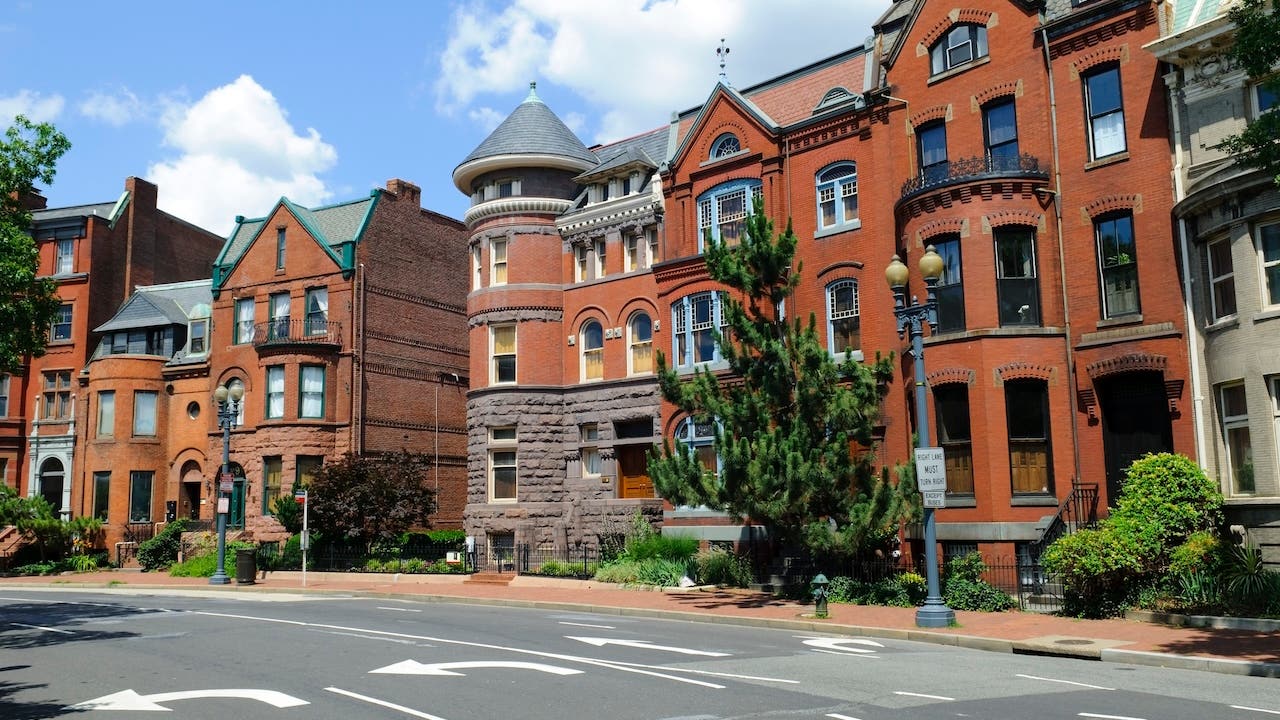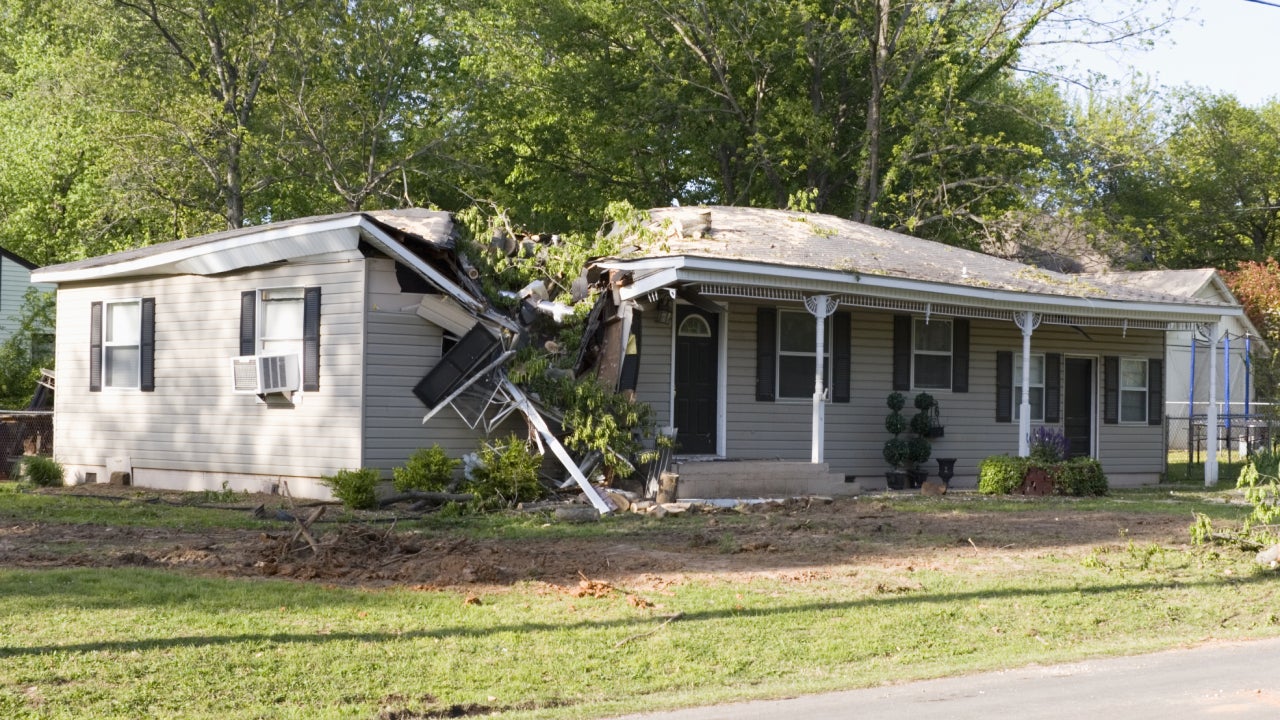Closing costs in Washington, D.C.: Who pays for what

Whether you are buying a house in Washington, D.C. or selling one, real estate transactions here can be expensive. Closing costs are all of the costs associated with the sale beyond just the home’s price tag — these can include real estate agent commissions, lender fees and property-related taxes. And D.C. has some of the highest closing costs in the U.S., according to the most recent data from ClosingCorp.
If you’re trying to figure out how much house you can afford within the city limits of our nation’s capital, or thinking of selling one you already own, let’s take a deeper look at closing costs in D.C. and how they add up for both buyers and sellers.
How much are closing costs in Washington, D.C.?
The final bill for closing costs differs for every transaction, but Washington, D.C. typically has higher closing costs than other parts of the country. Average closing costs here typically average 3.9 percent of the home’s purchase price, per ClosingCorp. While that’s not much more than in bordering Maryland, which has an average rate of 3.7 percent, it’s well above it’s neighbor across the Potomac, Virginia, whose rate is just 1.7 percent.
D.C.’s home prices are on the high side, too, with a median sale price of $632,000 in August 2024, according to Redfin data. So, for a median-priced home sale in D.C., total closing costs would come to a steep $24,648. Of course, prices can vary significantly from one neighborhood to the next, so the amount you’ll pay will depend greatly on home prices in your specific area.
Who pays closing costs in Washington, D.C., buyers or sellers?
Keep in mind, though, that the full amount of closing costs is not paid by just one party. In Washington, D.C., just like in the rest of the country, the buyer and seller both pay some of the transaction’s closing costs. The expenses buyers cover are most often related to their mortgage and lender. Sellers cover other costs at closing, including any concessions they may have made during negotiations. And, while an attorney is not required to sell or buy a house in D.C., either party may choose to hire one anyway, to be sure their interests are protected. In that case, the legal fees would also be due at closing.
Here’s what both buyers and sellers can expect:
Common closing costs for buyers
- Lender-related fees: Lenders will usually charge various fees when you take out a mortgage — borrowers may need to pay an application fee, credit report fee, loan origination fee and more. If you choose to pay down your interest rate with mortgage discount points, that expense will also be a closing cost.
- Appraisal fee: Your lender will also require an appraisal of the home to assess its value (and make sure it’s worth at least the amount they’re lending you). This could cost several hundred dollars, depending on the size and location of the home — the national average for a single-family home is $357, according to HomeAdvisor.
- Home inspection fee: Buyers can choose to waive an inspection, but it’s wise to get one even though it’s not mandatory. A thorough home inspection will usually run another few hundred dollars and will clue you in to any existing or potential problems the house might have. Any issues found can be used as bargaining chips when negotiating.
- Title-related fees: There are typically fees to cover a title search and title insurance policy as well, often paid for by the buyer (but also sometimes negotiated).
- Recordation tax: Buyers typically pay a recordation tax in Washington, D.C. The rate is 1.1 percent of the value for properties under $400,00 and 1.45 percent for properties valued above that. For a median-priced $632,000 D.C. home, 1.1 percent comes to just under $7,000.
Common closing costs for sellers
- Agent commissions: Real estate agents’ commission fees typically run around 2.5 to 3 percent of the home’s sale price. Sellers who use an agent will be responsible for paying that fee, and may be on the hook for their buyer’s agent’s fee as well (depending on the details of the contract). For a median-priced $632,000 D.C. home, 2.5 percent comes to $15,800.
- Title insurance: Sellers often cover the cost of the owner’s title insurance policy.
- Transfer tax: In D.C., the transfer tax is typically paid by the seller and is calculated at the same rate as the recordation tax: 1.1 percent for homes under $400,00 and 1.45 percent for those valued above that.
- Property taxes and HOA fees: The seller is responsible for any applicable property taxes and homeowners association fees right up until closing day.
- Mortgage payoff fees: If you have an existing mortgage on the home, that will need to be paid off, typically using funds from the sale. Wiring the funds will likely carry a modest fee.
- Seller concessions: Often, sellers agree to pay for certain repairs or buyer costs during negotiations with the buyer. These costs are due at closing.
Lowering your closing costs in Washington, D.C.
Like many aspects of real estate, closing costs can be often negotiated or lowered. For example, both buyers and sellers should think thrifty and shop around for service providers, attorneys and real estate agents to find the best deals. Many agents are open to negotiating fees, especially on higher-priced homes, and there are also discount agents who charge a lower rate or even a flat fee regardless of sale price. It never hurts to ask.
Buyers would also be smart to shop around for lenders who can offer them the best mortgage rate and terms. Consider looking into whether you qualify for any government programs that offer assistance with down payment and closing costs, too — for example, D.C.’s Home Purchase Assistance Program provides up to $4,000 in closing cost assistance for eligible applicants.
Find a local real estate agent
Whether you are a buyer or a seller, a real estate agent who knows your specific neighborhood of Washington, D.C. can help you navigate the process more successfully. Local agents often have connections with lenders, inspectors, attorneys and more — an experienced agent can also smooth out the path to closing and handle any hiccups along the way.
FAQs
Why we ask for feedback Your feedback helps us improve our content and services. It takes less than a minute to complete.
Your responses are anonymous and will only be used for improving our website.
You may also like

What disasters does home insurance cover?

What are real estate transfer taxes?

Closing on a house: What to expect



